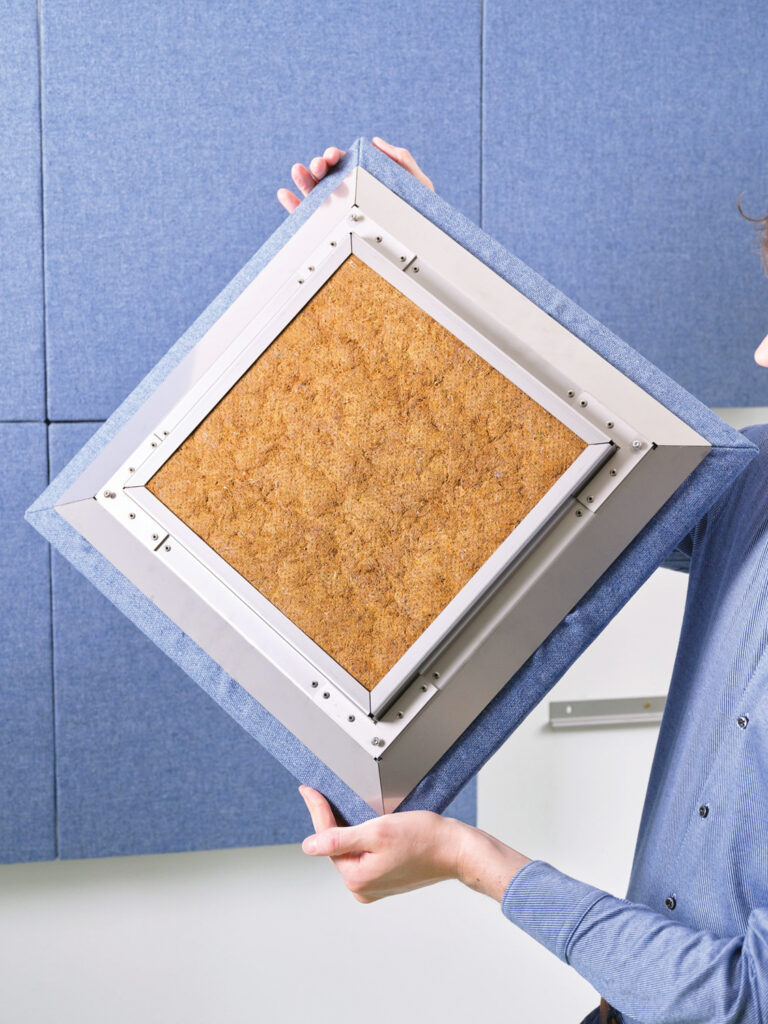
Founded in June 2021 by Belgian designer Sander Nevejans, Seastex has developed a method to turn mussel beard (byssus) waste into lightweight acoustic tiles and insulation.
Byssus filaments are natural fibers made by some marine and freshwater bivalve mollusks, which use the byssus to anchor themselves to rocks, substrates or the seabed. The byssus, also known as the mollusks’ “beard,” is inedible and is typically removed before cooking or packaging.
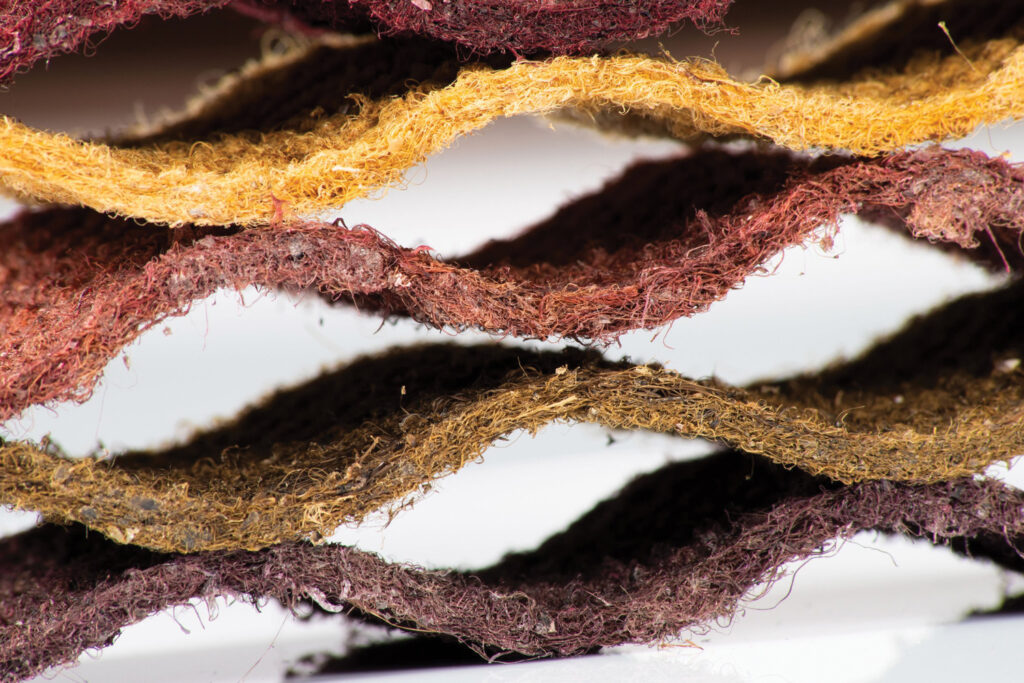
Nevejans developed a treatment process to clean large quantities of this waste and transform the byssus fibers into a uniform material. Through novel fiber processing technology, Seastex turns it into a cloud-like substance called “Seawool” or “sea bale.”
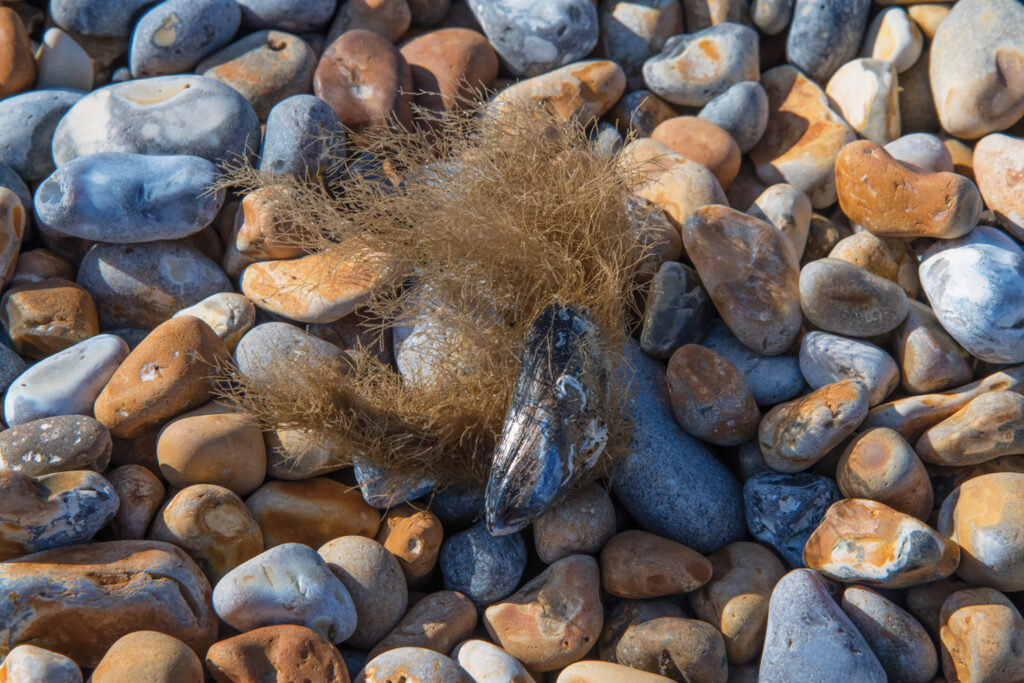
“Byssus fibers possess great potential as high-value and long-lasting materials in the international construction market,” Nevejans says. “Not only do they offer unique acoustic properties for the production of novel sound-absorbing products, but they also contribute towards achieving multiple sustainable development goals. By harnessing the unique properties of byssus fibers, the construction sector can contribute to developing sustainable cities by utilizing eco-friendly materials.” Its cultivation can provide work opportunities and economic growth in coastal communities.
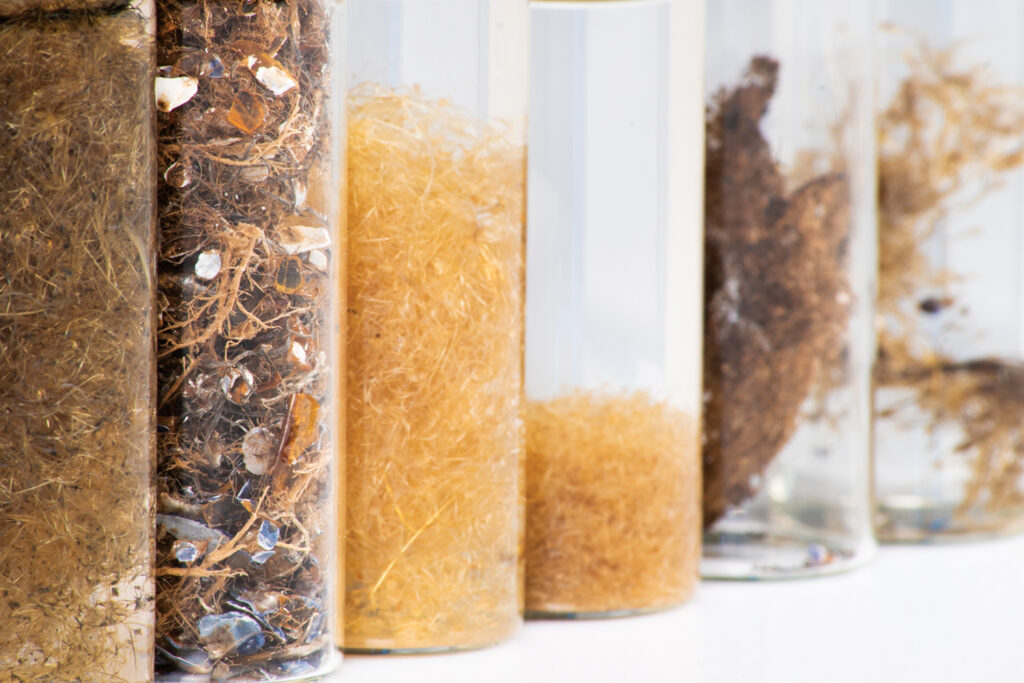
Seastex’s in-house research further revealed that byssus surpasses other natural and petroleum-based fibers’ fire safety standards. It needs a higher oxygen level to ignite and so doesn’t support flames. Even when smoldering might occur, it dies down quickly. When exposed to extreme heat, the cell membrane structure swells, creating an insulating layer that hinders the spread of fire.
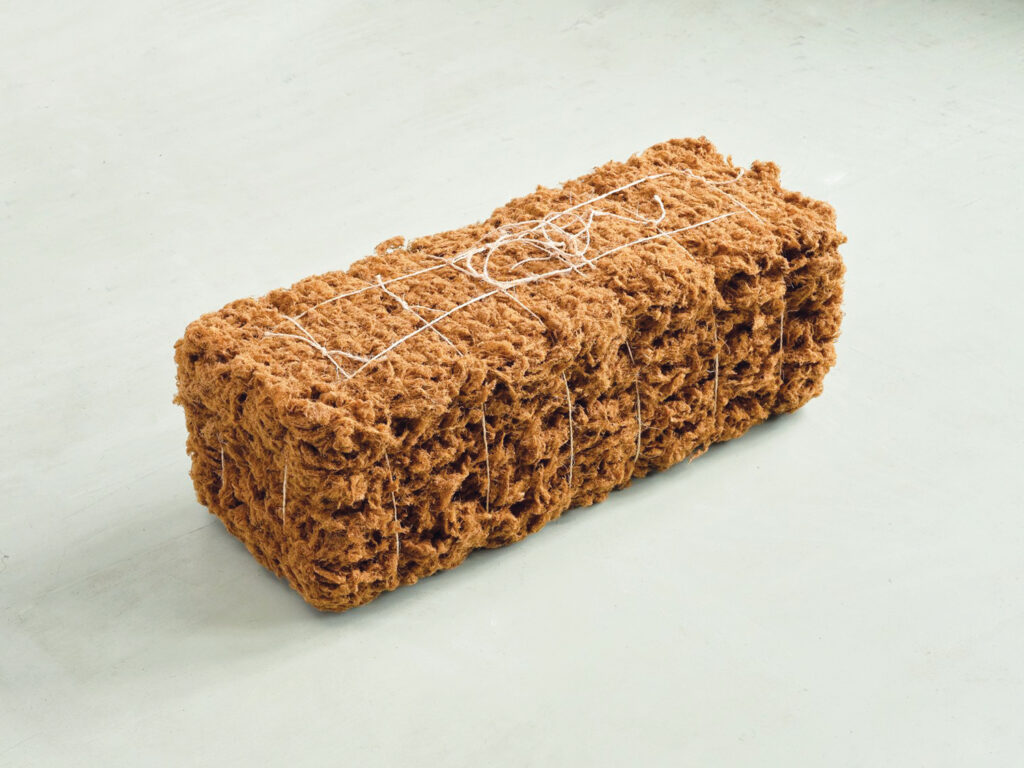
The company says that mussel beards offer a sustainable and environmentally friendly alternative because mussels do not require feeding, antibiotics or pesticides, reducing the negative impact on ecosystems. Mussels also take up carbon dioxide when growing and remove microplastics, algae, bacteria and other small particles from the environment, thereby improving water quality.
 TEXTILES.ORG
TEXTILES.ORG


